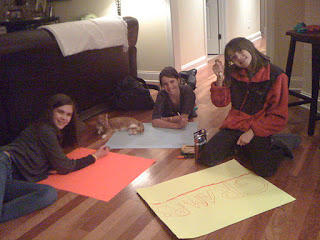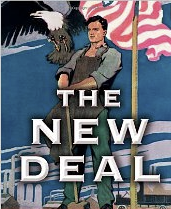Continued from Part 40
I suppose there comes a time in the life of almost every person with a terminal illness when they and the people around them realize they have turned a corner that is not for the better as they had hoped. It’s that day, that hour, that moment when the stakes are changed and so is one’s perspective, when the focus of treatment becomes different from when it was a Cure.
I think that Turning Point in Dad’s illness was different for my mom, for each of my siblings, and for me. For Mom, I think it was on our trip to Duke, first when she realized that Dad’s concept of time, which had always been absolute in him, was totally gone, and then when we got to the Brain Tumor Clinic and she noticed that Dad was the only patient there with his level of impairment. As we rolled down the interstate and then as we rolled his wheelchair into the clinic the next day, her hope for a Cure was dashed. (Side note: People around that time kept telling us that we just needed to get used to a New Normal, and every time I heard that, I wanted to scream, “TO HELL WITH THE NEW NORMAL! I WANT OUR OLD NORMAL BACK!”)
Our brother Lee has said that he saw the changes in Dad as so blaring when he saw him around Thanksgiving that he felt in his gut that Dad was not going to get better.
For my sister Jennifer, the Turning Point came on the afternoon when she was at our parents’ house alone with Dad before his second hospitalization -- not when he fell, but after that, when he was in the bed, looking so frail, so helpless, and with his breathing so labored that she felt compelled to videotape it so that she could believe it, process it, and document it.
The Turning Point for my sister Nancy came a little later in our story, on the day after we brought Dad home from the hospital for the last time, as she listened to his voice get weaker and weaker and as she watched him, wrapped in blankets as if he were in a cocoon, being picked up by our husbands so they could move him from the bed to the couch. He was so afraid that he wouldn't be able to communicate with us for much longer. We were so afraid that he would fall off the couch because he could hardly move and that it would hurt him to move him. We were all just so incredibly afraid.
The Turning Point for me came as a result of a one-two punch on the second full day after Dad was moved out of the ICU into a regular room, three days before New Year’s Day and two days before we took him home. The oncologist came by for his morning rounds and told Dad “the only thing in the way of going home for you is your strength.” He ordered more OT and PT, and thus the gauntlet was thrown down; so depleted and yet so determined, Dad began talking about how he was going to exercise and eat, “even more than before,” he said. “I just want to do whatever it takes so that I can go home!”
That afternoon, the OT stopped by and, with Dad lying in the bed, had him do 15 minutes of arm exercises (“Is that IT??” I wrote in the margin of the Notebook when I realized the session was ending after that.), and then the PT came in and helped Dad sit on the side of the bed for ten minutes. After she had left, Dad realized that was going to be the sum total of his rehab activities that day, and he said, “I really think if I am going to have any chance of getting out of here, I should get up out of the bed.” I summoned the nurse and a nursing assistant and told them of our plan. Both were hesitant and doubtful, but, I thought, they don’t know my dad and they don’t know me – we ARE going to make this happen.
Gritting his teeth and with almost total support to keep his legs from buckling and then with full support to slide his feet one at a time across the floor, Dad made it from the bed to the hospital-grade recliner before collapsing into the chair. “Let’s see if you can stay up in the chair for 30 minutes,” the nurse said, as she and the tech left the room. The next half-hour seemed excruciatingly long; my sister and I tried to cheer Dad on while he gutted out each minute. He said he was cold and that he felt “achy all over,” and then, when his time was up and after we had helped him back into the bed, he got a terrible muscle cramp in his thigh and hip. We could actually see the muscles contracting as Dad writhed in pain after the transfer. We tried massage, we tried repositioning, we tried stretching, we tried a heating pad, and, finally, amidst deep and wounding pain, he begged for medicine. The orders on the chart didn’t include anything that would even touch the pain. DAMN the process that it takes to have to call the doctor to get permission for pain medication for a terminally ill patient. Isn’t losing control and slipping away torture enough? It took well over an hour to take away the pain from that horrible cramp in Dad’s muscle, and, as we learned over the next few days, the trauma of the episode could not be erased from his memory, taunting him and making him afraid after we left the hospital that we would not have enough medicine to temper his agony if the pain came back.
Despite the pain and exhaustion, Dad took in a lot of calories that day, so much that by that evening he was nauseous from having eaten so much more than he had been used to eating. When the dinner tray came that night, he said with a mixture of dread and fear in his voice, “Oh, no! Not food again! I can’t stand eating – it makes me hurt worse!”
Watching him that day, I could see the anxiety and the weight of the burden of the task that he saw before him; eating had become not just an obligation and an encumbrance but an insurmountable challenge for him. Over the course of the days before, he had started apologizing and making excuses about not eating whenever I walked into the room, and, when I saw the deep remorse and the sorrow in his eyes, I knew it was not really a choice that he could make anymore. His body just could not do it. “The Deal is off,” I told him that night with tears in my eyes. “I am so proud of you for trying so hard to eat, and from now on you can eat whatever you want, whenever you want, or not.”
“Will I still get to go home, though?” he asked me earnestly.
“Yes, Dad,” I told him. “I just don’t want you to worry anymore.” And then I turned away from him to hide the flood of tears that streamed down my face, an outpouring that would go on for the next week as we made the arrangements to bring Dad home, as we cared for him at home as his condition continued to worsen, and as we watched him slip away.














